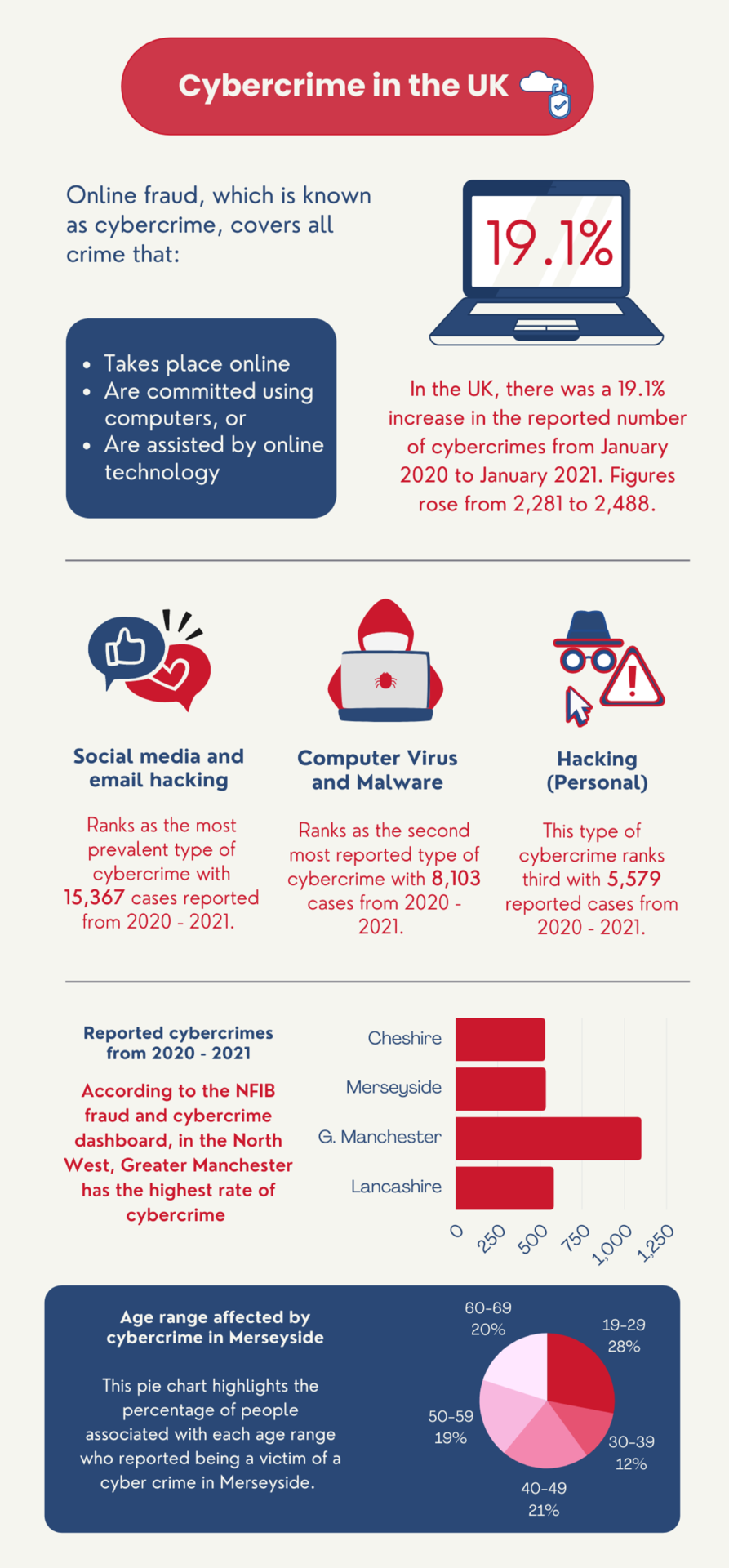Merseyside has a total of 534 reports of cybercrime, according to a new study.
There has been a 30% increase of the crime during 2021, which includes personal hacking, social media and email hacking and computer viruses.
The report from cybersecurity leaders ESET revealed that in January 2020 43 cybercrimes were recorded in Merseyside, which had risen to 56 in January 2021.
In comparison to other areas of the Northwest, Merseyside ranks alongside Cheshire and Lancashire with Greater Manchester having the highest rate.
When classed by age, Cybercrimes reported by 19 to 29-year-olds in Merseyside was the biggest category at 28%.

Scams are often from hackers pretending to be from the NHS or HMRC, however, there are a variety of circumstances that can affect people.
Rachel Howarth, 32, who is from St Helens and was a victim of cybercrime as a result of the end of a relationship.
“After an ex-partner hacked into my social media accounts, I felt humiliated and vulnerable.”
Rachel added: “They had contacted my family, friends and colleagues pretending to be me and sent embarrassing personal info, most of which was untrue.”
”I would encourage everyone to keep a record of any issues online and talk to the people closest to you about what’s happening.”
Protect Yourself Online
A few small changes in your online behaviour can reduce your chances of becoming a victim of cybercrime.
How to protect yourself online:
- When creating passwords, use three unrelated words and think of different words for each account, so if one account is comprised, the other passwords are safe
- Do not give personal or sensitive details out online
- Regularly update your apps
- Only download from legal, trusted websites
- Be cautious of internet chats and online dating – there’s no guarantee you’re chatting to who you think they are
- Be extremely cautious if you’re asked for money online
- Install two-step verification
The Government’s National Cyber Security Centre has a step-by-step guide on how to recover an online account if you’ve been hacked.
Email and Text Scams
Be careful when opening emails and texts, and if it seems unusual or unexpected, even if it’s someone you know, ignore it and contact the sender directly to check if they sent it.
Remember your bank, the police and reputable companies will never ask for sensitive or financial details over email.
- Do not open attachments or clicks on links in emails
- Set up spam filters on all of your accounts
- Don’t respond to emails or texts from unknown sources
If you are currently experiencing a cyber-attack, then contact Merseyside Police on 101.
If you suspect you’ve been scammed, defrauded or experienced cybercrime, call Action Fraud on 0300 123 2040 for support and advice.
Featured image by Mika Baumeister, Unsplash, Creative commons licence










